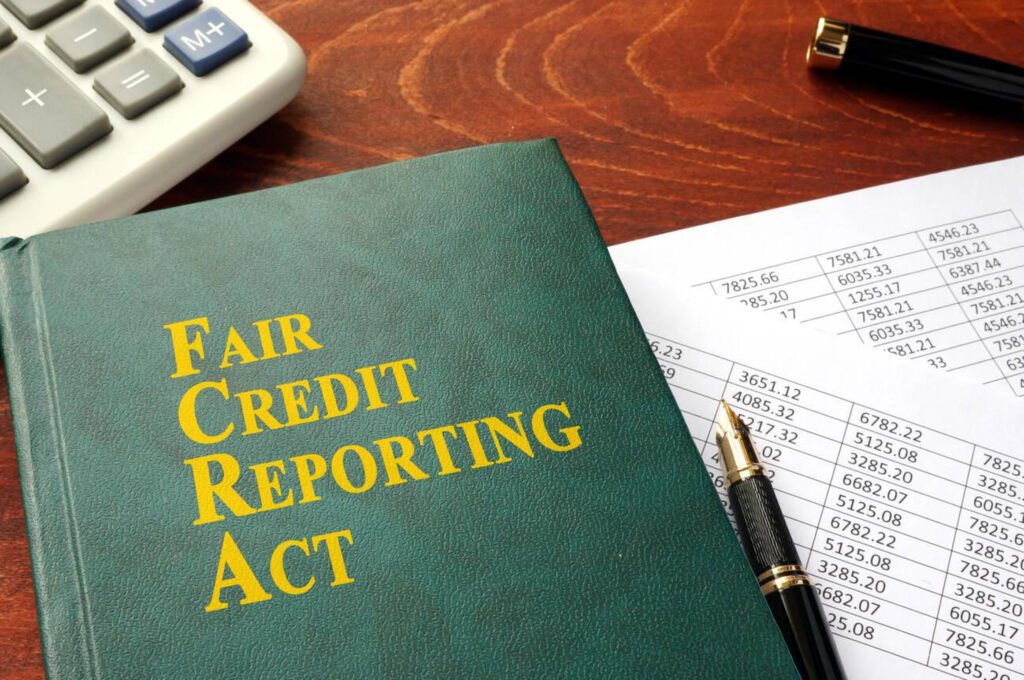FCRA and Student Loans: If you’re one of the 45 million Americans with student loan debt totaling $1.77 trillion owed in the U.S., understanding lender responsibilities under the Fair Credit Reporting Act (FCRA) ensures your credit health doesn’t suffer unnecessarily. With complex credit reporting around this specific debt type, more borrowers seek information about their rights for accurate representation. Specifically regarding student loans, knowing FCRA provisions can ensure proper credit reporting by lenders.
The Basics of the FCRA
The FCRA is a federal law governing credit reporting protocols and protecting consumer rights. Under the FCRA, credit bureaus and lenders must:
- Ensure credit information is accurately reported.
- Promptly investigate and resolve credit reporting disputes initiated by the consumer.
- Secure permission before accessing an individual’s credit report.
- Avoid reporting outdated negative information.
This law lets you dispute errors or outdated items on your credit report to safeguard your score. However, it does not erase all negative reporting, especially related to late or non-payments.
FCRA and Student Loans: Common Credit Reporting Issues
Since most student loans feature long repayment timelines, misreporting or outdated information can remain for years if not addressed. Common issues faced by student loan borrowers include:
- Incorrectly reported loan type (federal vs. private)
- Inaccurate loan status, such as deferment or forbearance periods being labeled delinquent
- Closed accounts still showing open and accruing interest
- Loan transfers between servicers show up as new debt
- Payments are wrongly considered late due to processing delays
- Years-old collections remaining after debt rehabilitation
Errors can multiply over loan decades, eventually taking a sizable toll on your credit. As a borrower, this negatively impacts your ability to qualify for other lending needs.
FCRA and Student Loans: Utilizing Provisions to Your Benefit
The FCRA equips all consumers, including student loan holders, with certain credit information accuracy and fairness protections. Key provisions related to credit reporting disputes that you can leverage include:
Validation from Creditors
You can demand creditors validate outstanding debts being reported when inaccuracies are suspected. The onus is on them to confirm amounts owed and appropriate standings.
30-Day Investigation Requirement
When filing credit reporting disputes, the FCRA legally obligates bureaus to investigate within 30 days or remove questionable items if verification isn’t provided swiftly by the lender.
7-Year Limit on Negative Details

Federal law prohibits most adverse credit reporting beyond seven years. This grounds you to appeal outdated collections or delinquencies still clinging to your history from older student debts.
Free Annual Credit Reports
Thanks to the FCRA, borrowers can access their reports from all three bureaus gratis yearly to scour for inconsistencies around student loan statuses.
Easy Initiation of Disputes
Credit agencies now enable consumers to contest errors conveniently online or via mail. Many lenders also have dedicated channels for reporting inaccuracies around student debt directly to them.
Regularly monitoring your credit as a student loan holder lets you catch discrepancies immediately, request investigations under FCRA guidelines, and submit evidence to resolve the issues promptly.
FCRA and Student Loans: Strategic Next Steps for Student Loan Borrowers
FCRA and Student Loans: As revealed, the FCRA does offer vital protections when facing credit reporting headaches, including around student loans. Next proactive steps borrowers can take to leverage FCRA provisions include:
- Access free credit reports from Equifax, Experian, and TransUnion to audit all active and closed student loans. Compare reported statuses and balances to your records.
- If errors exist, formally dispute them with the attached documentation. Employ FCRA dispute resolution processes for correction within 30 days.
- Submit loan servicer change notifications to credit bureaus directly to prevent new servicers from being labeled additional debt.
- Learn FCRA provisions for rebilling outdated medical collections under a year and utilize these for student loan collections under certain circumstances.
- If over seven years have passed since a student loan default or acceleration event, appeal for its removal from reports based on FCRA section 605(a).
The burden ultimately falls on creditors and bureaus to maintain truthful reporting. As a consumer, initiating disputes around student debt misrepresentations prompts necessary investigations that can dramatically restore your score over time.
Arm yourself with FCRA knowledge pertinent to student borrowers to take control of your credit narrative if conflicting information ever threatens it. Every successful dispute brings you closer to qualifying for future loans under preferable terms.
What is the Fair Credit Reporting Act (FCRA)?
The FCRA is a federal law regulating credit reporting, ensuring accuracy, fairness, and privacy. It empowers consumers, including student loan borrowers, with right to dispute and correct credit report inaccuracies.
What common credit reporting issues do student loan borrowers face under the FCRA?
Common issues include misreported loan types, inaccurate statuses (e.g., deferment labeled as delinquent), closed accounts still accruing interest, and errors in payment history due to processing delays.
What protections does the FCRA offer for student loan holders in credit reporting disputes?
Key provisions include validation from creditors, a 30-day investigation requirement for credit bureaus, a 7-year limit on negative details, free annual credit reports, and easy initiation of disputes online or by mail.
How can student loan borrowers leverage FCRA provisions for credit reporting disputes?
Borrowers should regularly access free credit reports, compare reported information to personal records, dispute errors with documentation, submit servicer change notifications, and utilize FCRA provisions for specific circumstances (e.g., rebilling outdated collections).
Who bears the responsibility for accurate credit reporting under the FCRA?
Creditors and credit bureaus are responsible for accurate and truthful reporting. Initiating disputes around student loan misrepresentations prompts necessary investigations, potentially restoring credit scores over time.

